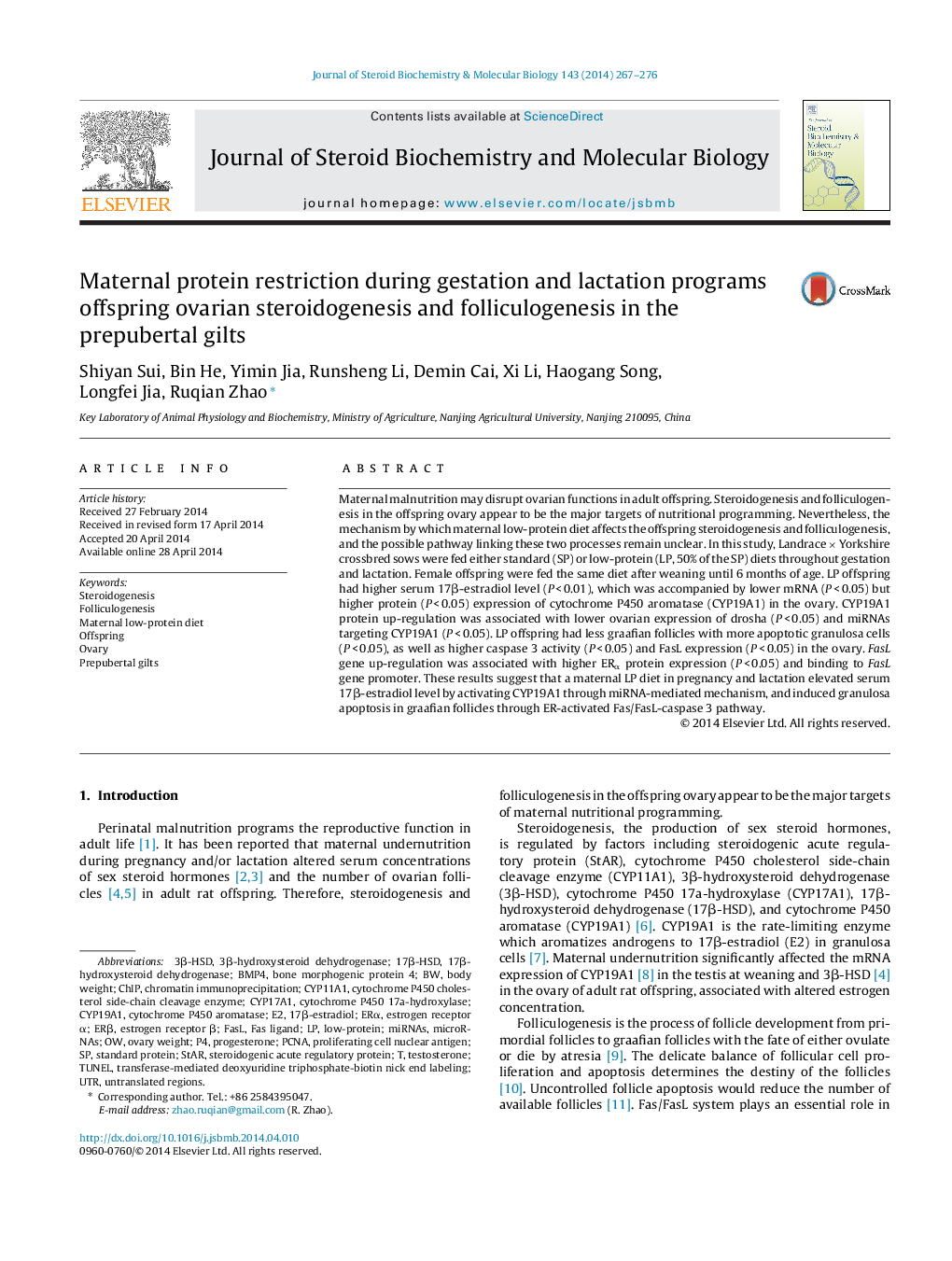| Article ID | Journal | Published Year | Pages | File Type |
|---|---|---|---|---|
| 8338742 | The Journal of Steroid Biochemistry and Molecular Biology | 2014 | 10 Pages |
Abstract
Maternal malnutrition may disrupt ovarian functions in adult offspring. Steroidogenesis and folliculogenesis in the offspring ovary appear to be the major targets of nutritional programming. Nevertheless, the mechanism by which maternal low-protein diet affects the offspring steroidogenesis and folliculogenesis, and the possible pathway linking these two processes remain unclear. In this study, Landrace Ã Yorkshire crossbred sows were fed either standard (SP) or low-protein (LP, 50% of the SP) diets throughout gestation and lactation. Female offspring were fed the same diet after weaning until 6 months of age. LP offspring had higher serum 17β-estradiol level (P < 0.01), which was accompanied by lower mRNA (P < 0.05) but higher protein (P < 0.05) expression of cytochrome P450 aromatase (CYP19A1) in the ovary. CYP19A1 protein up-regulation was associated with lower ovarian expression of drosha (P < 0.05) and miRNAs targeting CYP19A1 (P < 0.05). LP offspring had less graafian follicles with more apoptotic granulosa cells (P < 0.05), as well as higher caspase 3 activity (P < 0.05) and FasL expression (P < 0.05) in the ovary. FasL gene up-regulation was associated with higher ERα protein expression (P < 0.05) and binding to FasL gene promoter. These results suggest that a maternal LP diet in pregnancy and lactation elevated serum 17β-estradiol level by activating CYP19A1 through miRNA-mediated mechanism, and induced granulosa apoptosis in graafian follicles through ER-activated Fas/FasL-caspase 3 pathway.
Keywords
CYP11A1ERαBMP4ERβ3β-Hydroxysteroid dehydrogenase17β-Hydroxysteroid dehydrogenase17β-HSD3β-HSDCYP17A1CYP19A1Prepubertal giltsCytochrome P450 aromataseLow-proteinPCNAmiRNAs17β-estradiolProliferating Cell Nuclear AntigenSteroidogenesischromatin immunoprecipitationOvarytestosteroneTUNELmicroRNAsStarFas LigandFasLOffspringfolliculogenesisUntranslated regionsUTR یا untranslated regions body weightSteroidogenic acute regulatory proteinbone morphogenic protein 4ProgesteroneCHiPEstrogen receptor αEstrogen receptor β
Related Topics
Life Sciences
Biochemistry, Genetics and Molecular Biology
Biochemistry
Authors
Shiyan Sui, Bin He, Yimin Jia, Runsheng Li, Demin Cai, Xi Li, Haogang Song, Longfei Jia, Ruqian Zhao,
